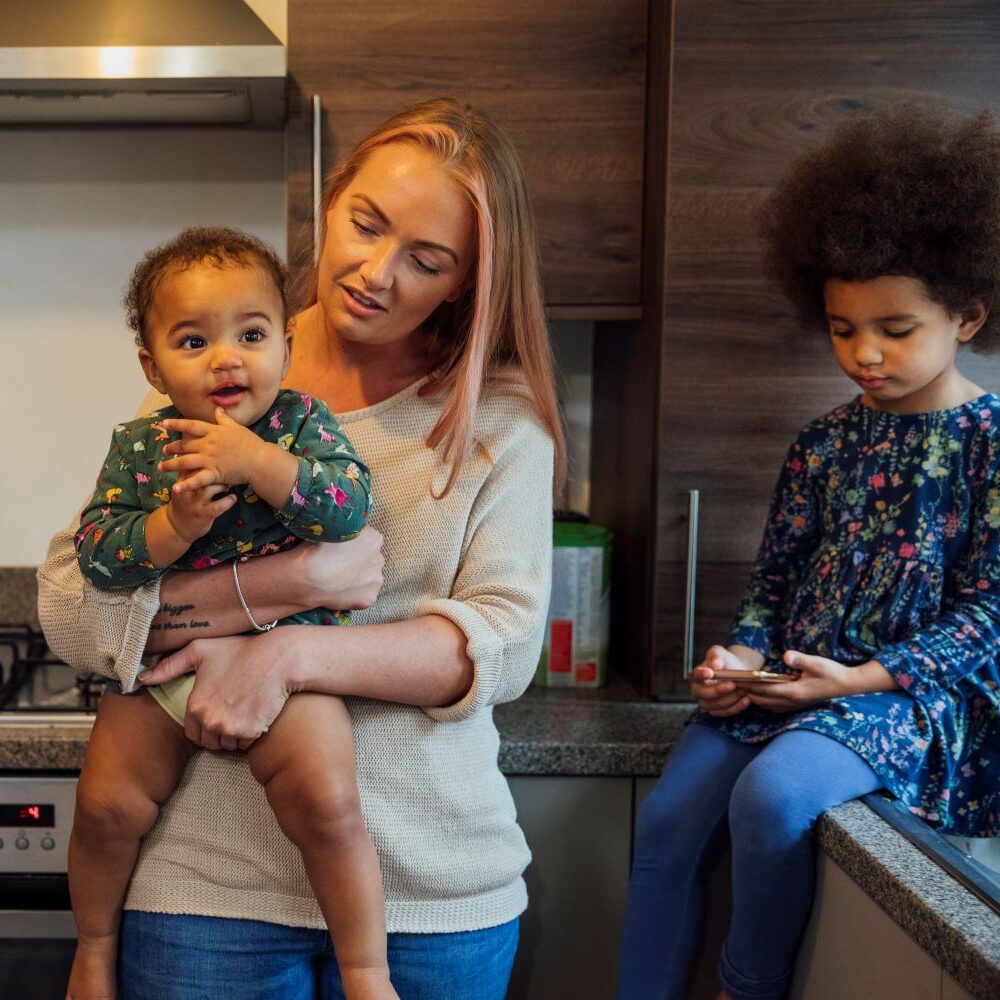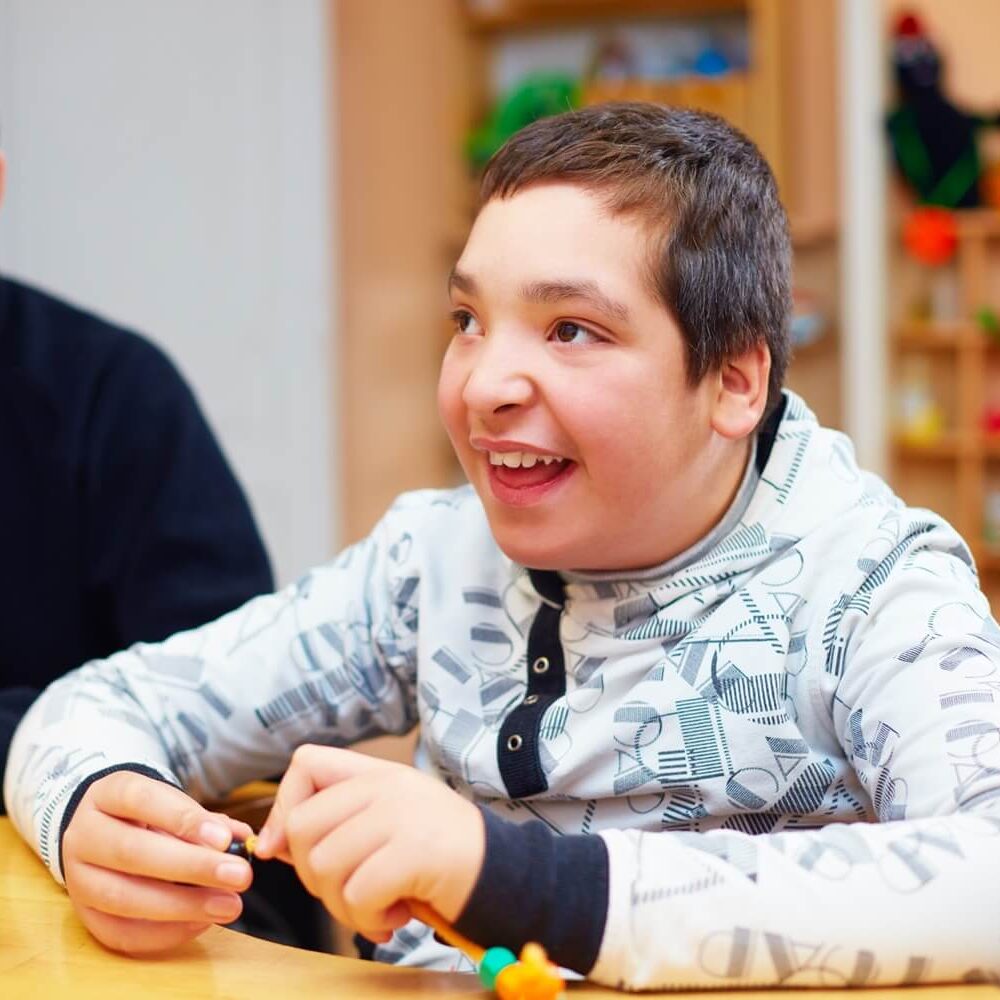Returning to school after the summer holidays can be difficult. Most children will be moving between year groups, with some changing schools. It’s a situation that could create anxious thoughts for any child, and children with special educational needs and disabilities (SEND) often experience additional challenges.
These challenges can relate to:
- change
- new – possibly unfamiliar – environments and routines
- unpredictability
- making new relationships and connections.
We’ve spoken with our special educational needs and disabilities experts within Family Action services to suggest a few points that might help you manage the return to school with your peace of mind intact.
Give yourself a break
It’s a difficult situation for any parent or carer to navigate, so there’s no shame in feeling slightly overwhelmed. One support worker at a service that provides support to children with SEND and their families says many parents undervalue their own experience and strength.
“Parents sometimes forget that they’ve handled challenging situations before. They tend to move onto the next milestone without taking the time to think about what they’ve already achieved. I would suggest to all parents and carers that you stop and reflect on the problems you’ve resolved before – you’ll soon realise how expert you already are!”
Check what transition plans are in place
Most schools should have procedures in place to manage the transition from one class or school to another and should have explicit plans for supporting pupils with SEND. These might include talking to you, connecting you to specific members of staff or support services or hosting activities to prepare children for what’s happening.
Communicate with your child’s school (or new school) to find out what support is available and possibly arrange a meeting with the key staff involved with your child.
Stop and reflect on the problems you’ve resolved before – you’ll soon realise how expert you already are!
Create a document about your child and their behaviours
All the Family Action experts consulted for this article agreed on the importance of having a document describing your child’s personality, likes, dislikes and behavioural triggers, which you can share with the school. In some cases, you may already have an Education, Health and Care Plan (EHCP) which you can share, but if your child doesn’t have a plan you can use any document which outlines who your child is – these might have come from other health or social care organisations and are typically called “about me”, “my passport” or similar.
If you have none of these that’s fine. Just take a piece of paper and write out who your child is, any behaviours the school needs to know about and any challenges that might come up. The teachers will be grateful for the effort you’ve made as it helps them to get a head start in supporting your child in the best way possible.
Our Helping Hands service in Sandwell is a befriending service for parents of children with additional needs and helps parents produce transition documents like these. Helping Hands Service Manager Sam said: “It might seem like it’s just a piece of paper, but it helps the teacher know what the individual child’s triggers for a change in behaviour are and what strategies are in place to support them. It can be really helpful.”
Ask for a picture guide to the school day
Some schools produce a social story for children with SEND – which is like a comic book or picture book showing key facts about the school day. It might, for example, outline which gate your child should enter through, where their classroom door is, the school menu, or where the toilet is. It might even have pictures of key members of staff.
If your school hasn’t done one and feels they can’t do so when you ask, there’s nothing to stop you asking if you can produce one yourself. Some schools will be perfectly happy to let you visit and take photos in advance, or provide you with images for a book of your own.
Even if this is not the case, you might be able to get some key information about the timetable and the school building to set your child’s mind at rest – for example, being able to tell them that the toilet is right outside their classroom.
Allow plenty of time to help your child prepare
Your child may be joining a new setting and gaining a new teacher, new classmates and a whole different routine – particularly if they’re coming from primary school where they’ve been in the same class all day with the same teacher. It’s a big change which removes the safety involved in knowing what to expect, which can feel overwhelming.
One of our Family Support Workers said this feeling of being overwhelmed gives us a clue to how to manage the change. “Start preparing the children sooner rather than later – start discussing the new term and practising the routine in small doses to avoid having to deal with it all in one go.
“It’s important to be positive about the situation during these discussions and not let your fears as a parent become their fears. I would focus on the different elements of what could take place – for instance trying on school uniforms and having trial runs of the walk to school in the days leading up to the end of the holidays. Start getting into the routine you would be in if it were going to school, including going to bed and getting up at the times you would be during term time.”
Obviously, you risk generating anxious feelings by doing so, but Operational Manager Louise from Helping Hands suggests: “Introduce new routines in tiny chunks to keep them manageable. Communication is the key part of preparing them and settling the anxieties of the unknown.”
Start preparing the children sooner rather than later – start discussing the new term and practising the routine in small doses to avoid having to deal with it all in one go.
Ask for additional transition days
All children usually get transition days to help them get used to a new school environment, and children with SEND often get additional days. If you think your child might need some additional support, it might be worth speaking with your child’s class teacher or Headteacher to see what can be done.
In certain circumstances, it might be a good idea for the school to look into a phased return, so your child isn’t overwhelmed. Even if you can’t get additional transition days it might be that other adaptations can be made, such as early entry into class, or a relaxed school uniform for those with sensory needs. Once again talking to your child’s school is the key. Remember, your child’s school and teachers want the best for them.
Think beyond the first day
Transition is ongoing and there’s no reason to assume that troubles that occur on the first day will continue throughout the year. The reverse is also true, however, and we shouldn’t assume there will be no issues after day one.
One of our Family Support Workers said: “Anything can happen, and what a parent might think a child would worry about might never come up. It can be something completely different that they can’t communicate. Even adults struggle to communicate our worries sometimes, so how can we expect children to do so?”
Keep talking to both your child and the school throughout the year to check no new issues have come up, and speak to the school quickly if they do.
Don’t assume the worst
Parents and carers want the best for their children and are likely to want to step in and deal with anxious thoughts immediately. But occasionally, parents worry about what appear to be anxious thoughts in their children but then later find out they’re excited and don’t know how to process the complex feelings they’re experiencing.
Our Family Support Worker added: “Again, I’d recommend going to look at the school and practising the routine. It’s like starting a new job… You don’t feel so bad when you turn up on the first day and see it for what it is.”
Anything can happen, and what a parent might think a child would worry about might never come up. It can be something completely different that they can’t communicate. Even adults struggle to communicate our worries sometimes, so how can we expect children to do so?
Discuss the timetable
Occasionally young people put pressure upon themselves to achieve and, in some cases, will not be happy unless they’re getting the best possible grade. Other pupils will fear that they can’t work at the level expected of them and may worry that they will struggle.
It may be useful to speak to your child’s school and see if you can get samples of last year’s work so your children can prepare and set their fears at rest. In some cases where children might struggle with the curriculum following a difficult transition, schools will consider a reduced timetable, but this usually only happens in exceptional circumstances.
A useful tip for children who worry
Our Helping Hands service has a useful tip for children who are prone to anxious thoughts… keep them busy! Helping Hands service Manager Sam said: “Fiddle toys or something to occupy busy hands can really help distract young people and draw their attention away from worrying.”
“We’ve seen children use lumps of playdough, stretchy springy toys, blue tack… anything really – just something from around the home that they can focus on rather than worrying”.
It’s worth discussing these items with teachers at the school beforehand and checking that they’re happy for your child to use them.
Speak to the experts
If you’re worried about your child starting or going back to school you might want to talk to someone who’s gone through this before. Most places in the UK have parent groups for children with SEND, as well as distinct groups for autism, ADHD etc, who will be able to tell you what works for them.
By law, local authorities are required to produce something called a ‘local offer’, which is a directory listing the support groups in your area. There should also be a dedicated advice service called an IASS (Information, Advice and Support Service) to help you find support and information locally. An IASS is a great place to start with local advice and can also put you in touch with parents and carers who’ve been through exactly what you’ve been through. You can find your local IASS here or search for a Family Action SENDIAS service near you.

Call, text, email or web chat FamilyLine
If you’re feeling overwhelmed, worried or upset about any aspect of your family life, FamilyLine is here for you. We offer free emotional support and guidance on family relationships, conflict, parenting, caring, financial worries and more.
Contact FamilyLine

